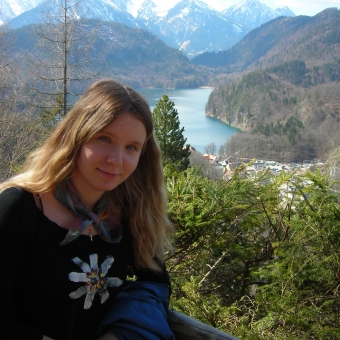
Almost all people studying Spanish eventually learn about international certificates they can get to confirm their degree of competency and mastery of the Spanish language (from A1 to C2).
Diplomas are issued by the Spanish Instituto Cervantes; in order to get one you have to take the DELE exam. Currently, it is not the only exam in Spanish, but the DELE diplomas are the ones which are recognised by all Spanish organisations, and can be considered as some kind of a pass to study and work in Spanish speaking countries.
So you have made a decision to take DELE. This exam is designed as a test containing writing and speaking parts. The speaking part is evaluated during the exam, and the written tasks are sent out to be checked, and it is a rather thorough process. They have to match certain criteria which examiners consider marking your work. For applicants it means that special preparation is absolutely necessary. And the reason is not that you might not have enough knowledge to pass the exam, but because being unfamiliar with the design of the exam you could feel nervous, which therefore can affect the results.
The exam has a certain structure, and you can learn more about it here
There are a lot of different courses, full-time and part-time, offering preparation for DELE. Usually they are organised as group classes and use special textbooks. However, today more and more candidates go for a more convenient way to prepare from the comfort of their own one home - remote courses.
Taking into consideration the format of the exam (and unfortunately, possible problems with the internet connection which might occur during video conferences with a lot of participants), we would say that private lessons with a teacher is the most optimal way to study.
When choosing a teacher you have to decide if you need a native speaker or if a Russian speaking tutor is also a suitable option for you. Preparing for DELE you should look for a teacher who has the DELE diploma, and therefore has their own experience with the exam. Most often you can find one among Russian speaking teachers. So even if you are advanced in the language, lessons with such a teacher will certainly be useful for you.
On the other hand, speaking practice with native speakers is also a great idea, especially for learners with the level B1 and higher. So the best decision might be a special DELE preparation course with a Russian speaking teacher with a weekly speaking practice with a native speaker.
These are some general ideas, but there is one more important question which affects both the choice of material and the format of preparation for the exam, ‘What does the exam mean to me?’
There are two types of students starting to prepare for DELE:
a) Those who take preparing for the exam as a language challenge (reto in Spanish). These are people who initially do not know the language well enough to pass the exam and take this risk when paying for it and enrolling into the preparation course in order to quickly “pump” their Spanish, to make a qualitative leap one level higher, and to overcome themselves in some sense.
b) Those who see the preparation as some kind of a final step in their language learning. In many cases the language level in such candidates is slightly higher than necessary. Most often these are the people who do not need the certificate for their own personal satisfaction, but they want to work or study, or these are the learners who don't have any language degrees but are willing to work with the Spanish language, and they require the C1-C1 DELE piblopma for this.
The teaching approaches for these two categories of students are quite different:
1. DELE preparation as a challenge.
So, the first type of candidates organise some kind of a language marathon when preparing. A private tutor is especially good for such learners, and it is this person who will help them to achieve the main goal that is to move to the next level of language proficiency. Special DELTA preparation classes, they are usually held in groups, mostly focus on making candidates familiar with the format of the exam.
Whereas individual classes allow more intensive learning process with the use of both special DELTA preparation books and different useful resources. Students learn new grammar steadily and effectively, can practise new rules straightway and get useful feedback and explanations from the teacher.
Studying from home doesn't mean only doing exercises, making dialogues and practising speaking skills. There are effective methods of activation and checking the knowledge, which a lot of teachers use, such as watching and commenting videos in real time, recording and analysing oral monologues, real time checking of written tasks with the help of online whiteboards or Google docs.
The goals of the language challenge in preparation for DELE can be defined as follows:
-
Intensive language classes in general, involving all its aspects (reading, writing, speaking, listening), including, along with preparation for the exam as such, learning and consolidating of new material.
-
Familiarisation with the format of the exam, the accumulation of skills to work with its typical tasks.
To achieve such goals, a private teacher can combine materials of different courses into one: general language course and exam preparation one, and at the same time they focus on needs of each student. Another important aspect is analysis of written tasks and oral presentations of a student , and consecutive work with extra exercises to bring together all the skills and work on problematic areas.
But if you go for offline classes in a language centre, we recommend combining general and exam preparation courses.
You still can achieve your goal - new language level to pass DELE - even when learning without a teacher. In order to do it you have to get:
1. a well-structured grammar textbook, we can recommend
- Uso interactivo de la gramática issued by Edelsa,
- Uso de la gramática española by J. Aragonés, issued by SGEL,
- Teoría de la gramática by Juan Gonzalez Hermoso issued by Edelsa),
2. a DELE preparation textbook of a required level, the newer the book the better, for example:
- new edition of Preparación al DELE issued by Edelsa,
- Las claves del nuevo DELE issued by Difusión.
3. an educational platform.
It will be absolutely perfect if you gain access to an educational platform with learning materials to work on different skills. Premium account on Difusión printing house, campus.difusion.com, grants you access to use a big number of textbooks, videos, audios and interactives exercises.
Meanwhile there is still an issue with speaking practice. To work on this aspect you can use various social networks and forums to find people to talk to not just with text messages but also have a conversation by Skype or Zoom. Another option is special language exchange networks, such as Italki. There for some money you can find native speakers to practise your skills with. They might not be professional teachers and but will help you with your goal just fine. Nevertheless, we wouldn't recommend looking for professional DELE teachers on such sites. A qualified teacher is always the best choice when preparing for exams.
2. DELE preparation as a final step in a learning process.
For many Spanish learning taking DELE can be the way to sum up some results, intermediate or final ones, or sometimes they to it to confirm their level of proficiency, for example, if they are going to work or study in Spain or in any other Spanish speaking country. And in this situation candidates already have a required level, and they need to become familiar with the format of the exam.
For this type of learner the best option is a short specialised course, which be done offline or online, and it will help to get to know the format of the exam and peculiarities of some tasks. For example, there are tasks, where regardless candidates’ level, they have to listen to the track, read the text or a few texts and then create their own article or monologue using not only acquired information but their own ideas on a given topic. And this task can be quite difficult even for advanced learners without special preparation. It means that apart from a good level of language , learners should also be able to memorise, make brief but detailed reports and sum up information in a short period of time.
It really is important to repeatedly recreate the exam situation or some of its parts. For example, use time limits when working with an imaginary examinator (you teacher can pretend to be one). Working on your own, you have to use the textbooks mentioned above, as well as some useful devices such as a voice-recorder to be able to listen and analyse your oral presentations.
You should also use the internet to look for materials suitable for the level of the exam you have decided to take. You can find a small selection of sample tasks on the exam website . Sonoraele blog offers rather useful materials, such as templates for business letters and documents, and recommendations for oral assignments, and examples of assignments themselves. It all can be easily googled.
An experienced teacher will easily find all the useful materials for students, and the textbook will form the structure of the course. If all the tasks are done fast and efficiently, two or even three books can be completed during the course. However, it is always a good idea to take your time and analyse, repeat and bring together what you have learnt.
A big number of candidates have a fear of speaking and listening parts of the exams. And in this case you absolutely must not focus on only using books to prepare. It is necessary to put yourself in the language environment. It means listening to radio programs, songs, online lectures, podcasts, workshops, and watching Tv shows. Learners with higher levels should listen and analyze more academic talks, such as reports, presentations, interviews on different topics.
Create your own exam preparation map where you will answer the following questions:
-
what helps me to get acquainted with the format with the exam and work with it? (for example, the examination website, special textbooks or blogs dedicated to it).
-
what helps me to revise grammar? (textbooks, exercises, interactive online platforms).
-
what helps me to practise reading? (Special textbooks, newspaper articles., scientific forums, and make notes of all the useful links you find!)
-
What helps me with listening skills? (Youtube channels of universities, video blogs.
-
who or what helps me to master speaking skills and writing? (recording your presentations and following analysis, having your texts checked by volunteers, language exchange sites, online lessons by skype or zoom).
And if you have an answer to each question, you are have a great chance to pass the exam!
Regardless of your goals, it is important to determining the timing of your preparation. Setting clear goals and dates is really helpful. For example, you can pay for the exam and start preparing three months ahead,. Your preparation classes must be regular and intensive, amd this will lead you to successful results with the exam!
Break a leg, and goodluck!






























